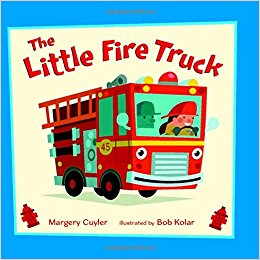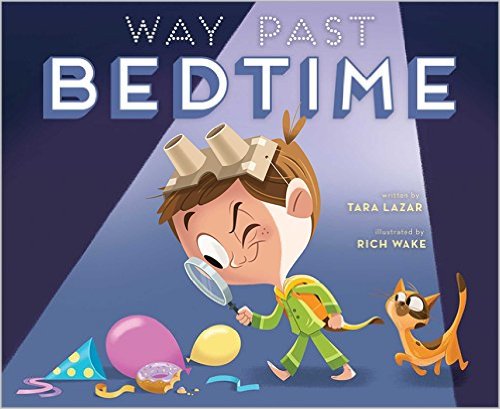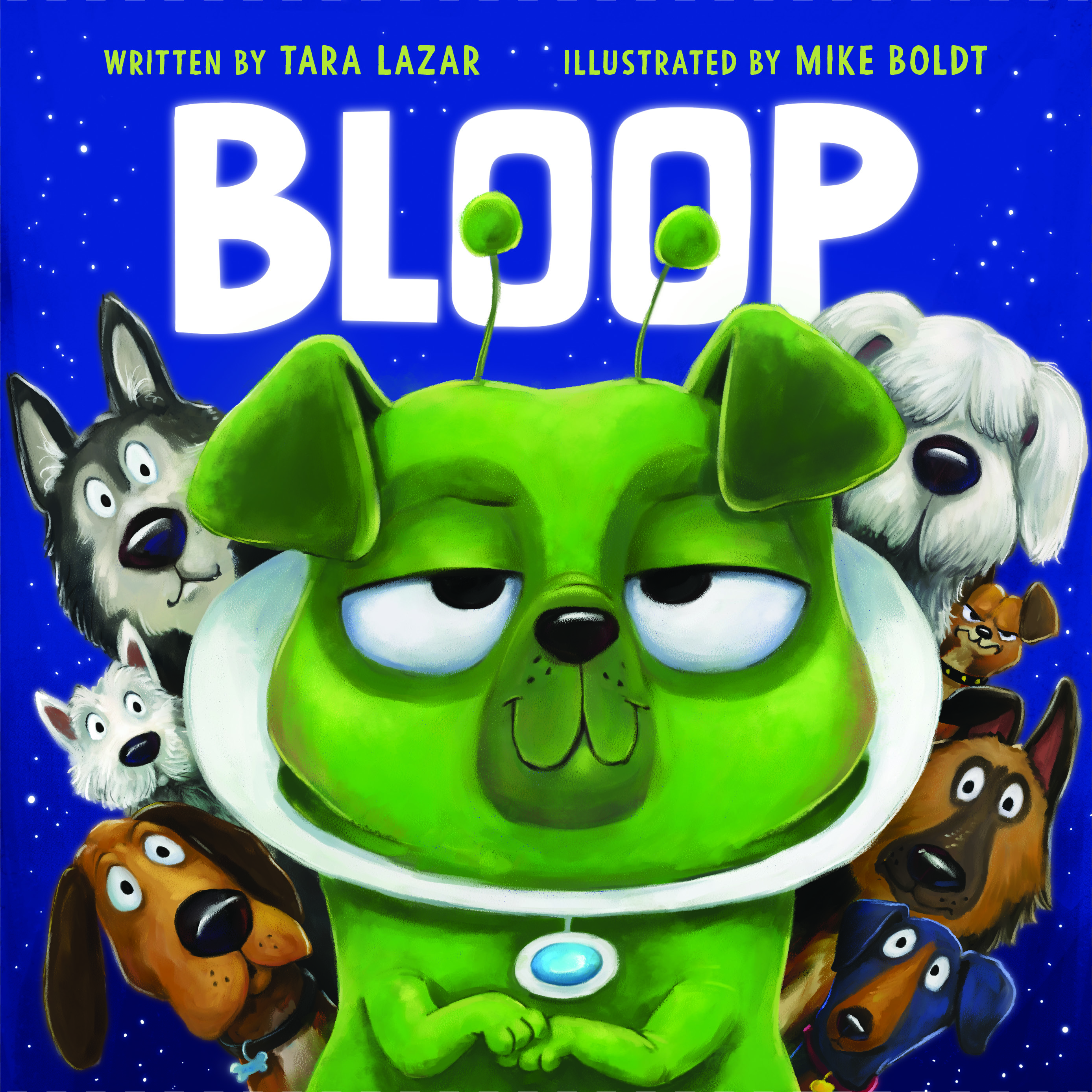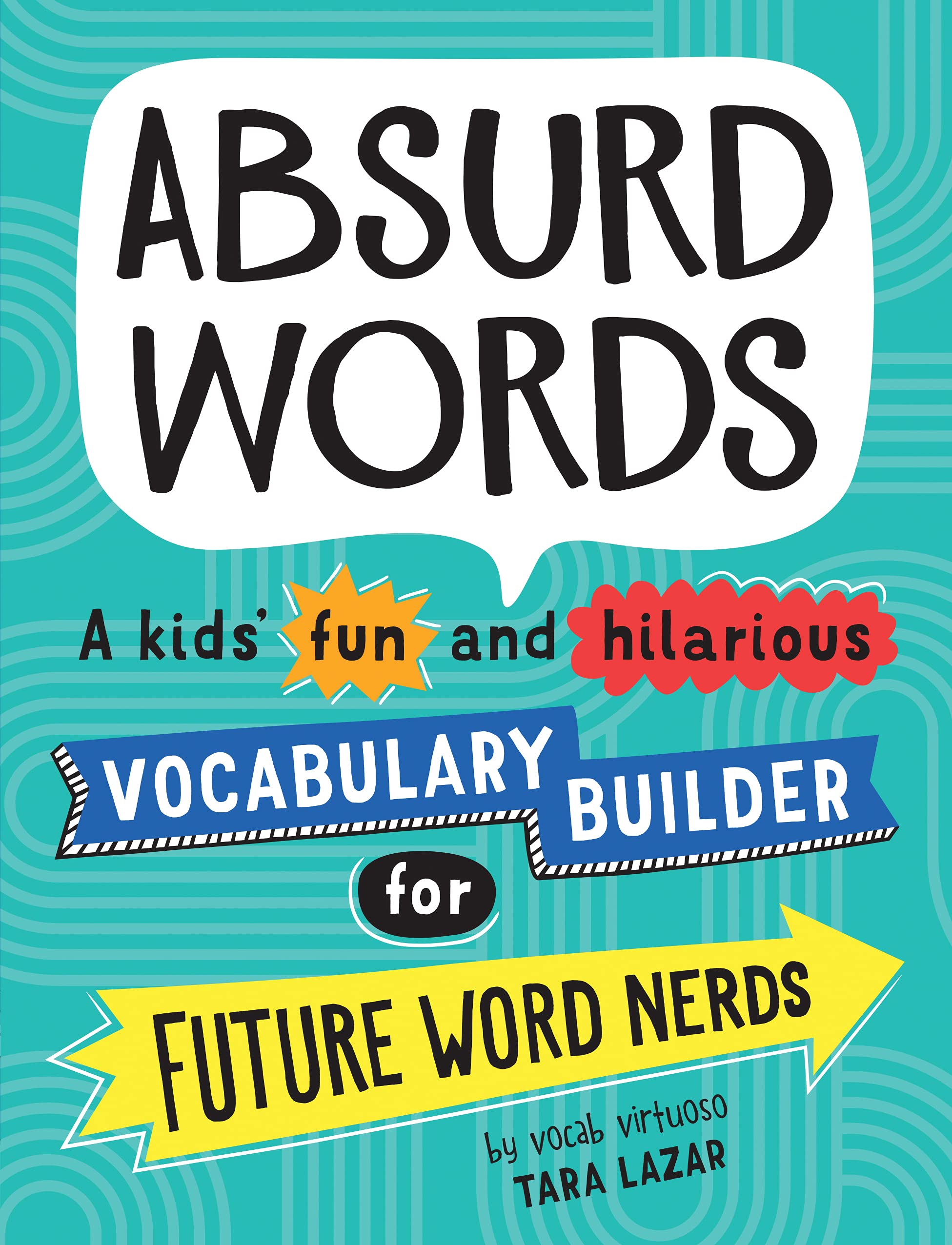
Photo credit: Richard Trenner
Margery Cuyler, editor extraordinaire, was the featured professional at a NJ-SCBWI first page session nine years ago. That evening I listened to everything this sharp kidlit veteran had to say and left with a notebook full of invaluable tips. Her comments about my writing gave me the confidence to keep working toward my dream of becoming published.
Although she no longer edits books, Margery Cuyler has continued to write them—and this fall she’s releasing three new titles, including her 50th, the humorous monster tale BONAPARTE FALLS APART, illustrated by Will Terry.


I was eager to talk to Margery about her career because she has ridden all the ups and downs and twists and turns of the children’s book market…and come out with her name ABOVE the title.
Margery, you have been successful in this business for more than forty years as an author and editor. What is different in children’s publishing now that you are launching your 50th book as opposed to when you were releasing your first book?
When I applied for my first publishing job in 1970, publishing was mainly a cottage industry; children’s books depended largely on library sales. Most publishers, for example Charles Scribner’s Sons and Harper & Row, focused on acquiring excellent books, not necessarily books that would elicit strong sales. The editors, such as Ursula Nordstrom at Harper, had a powerful voice in deciding what should be acquired, not necessarily consulting with the sales/marketing divisions.
All that changed when independent houses were sold to publicly traded corporations whose eye was mainly on sales growth. In addition, the chains—Borders and Barnes & Noble—became a significant vehicle for selling books as library funding contracted due to governmental budget cuts. Sales and marketing became increasingly involved in editorial decisions, thinking about the consumer as well as the librarian as their end customer.
Today, of course, publishers are selling books through many venues, maximizing exposure through online marketing. In addition, authors are expected to do more of their own marketing, utilizing social media as a tool by which to communicate. It’s really a whole different ballgame, although I firmly believe that editorial, design, marketing, and sales teams continue to work toward publishing excellent books, but excellent books that will sell. That’s the difference between now and 47 years ago.
I have heard recently that the market is saturated with picture books…but with good reason. What makes them more relevant than ever? What makes them the bright spot in publishing today?
I hear the same thing—that the picture-book market is robust. I think it’s for several reasons: parents/grandparents seem to prefer to introduce their children to literature by offering them books that allow for a cozy, intimate reading experience. In addition, a finely produced picture book might be a child’s only exposure to high culture. Stunning artwork, a well-written text, and high quality paper and packaging could contribute to a child’s ability later to discriminate between good quality and poor quality books. I guess I sound like an elitist, which isn’t quite accurate because truthfully I’m happy if kids are exposed to any kind of book rather than no books at all. Still, I am partial to picture books that are works of art. I firmly believe they help build the interior architecture of a child and I think many adult buyers and librarians know this.
Finally, publishers have their eye on China, as China has woken up to the importance of picture books and has been active in acquiring the rights to English-language books to translate and sell in the Chinese marketplace. And last, a beautiful picture book is the perfect antidote to the hatred and tension in the larger world. Picture books are a great escape, and I’ve noticed that recently more have been published on the themes of kindness and peace.
What theme most often recurs in your work and why do you keep coming back to it?
 I tend to write about friendship, perhaps because I remember how important my friends were when I was a child. I think all children value good friends, but as with adults, friendships can be challenged when trust is violated or circumstances, such as a friend moving to another community, destroys the relationship. Conflicting loyalties, shyness, lack of confidence are other psychological barriers to forming strong friendships. I strive for psychological verisimilitude and happy endings, which I hope helps give children the courage to overcome obstacles that impinge on their positive feelings about a friend. And then, too, I like to write humorous stories, since I think children—and the adults reading to them—need a pleasant way to escape some of the raw realities surrounding them in the larger world.
I tend to write about friendship, perhaps because I remember how important my friends were when I was a child. I think all children value good friends, but as with adults, friendships can be challenged when trust is violated or circumstances, such as a friend moving to another community, destroys the relationship. Conflicting loyalties, shyness, lack of confidence are other psychological barriers to forming strong friendships. I strive for psychological verisimilitude and happy endings, which I hope helps give children the courage to overcome obstacles that impinge on their positive feelings about a friend. And then, too, I like to write humorous stories, since I think children—and the adults reading to them—need a pleasant way to escape some of the raw realities surrounding them in the larger world.
 Often my humorous stories (i.e., SKELETON HICCUPS or BONAPARTE FALLS APART) are populated with ghosts, monsters, skeletons, etc., perhaps because I grew up in a house that was built in 1685 and was allegedly haunted. I came from a family of storytellers and artists who loved to make the most of scary characters when we played, and some of those characters have popped up in my books.
Often my humorous stories (i.e., SKELETON HICCUPS or BONAPARTE FALLS APART) are populated with ghosts, monsters, skeletons, etc., perhaps because I grew up in a house that was built in 1685 and was allegedly haunted. I came from a family of storytellers and artists who loved to make the most of scary characters when we played, and some of those characters have popped up in my books.
Next time you will have to come back and tell us all about that haunted house!
But for now, let’s give away a copy of the punny BONAPARTE FALLS APART, which is now available from Random House/Crown.

This is the tale of friends who try to help BONAPARTE from falling apart, leading up to the first day of school. It combines Margery’s love of friendship stories with her monstrous sensibilities.
Leave one comment below to enter (US only)...and a winner will be randomly selected before the end of the month! Good luck!
Margery Cuyler has had a distinguished career in the children’s book field. In addition to being the author of 50 children’s books, including the newly released Bonaparte Falls Apart, The Little Fire Truck, and Best Friends (a Step Into Reading title), she has held executive positions at Holiday House, Henry Holt and Company, Golden Books Family Entertainment, Marshall Cavendish, and Amazon Publishing. Although she retired from full time work in 2014, she continues to write and also consults for a variety of companies, including digital llc and PJ Library, a division of The Harold Grinspoon Foundation. Visit her online at MargeryCuyler.com.


















88 comments
Comments feed for this article
October 19, 2017 at 12:19 pm
cmdale
I am intrigued by the title, the cover and the idea behind this book. Can’t wait to read it.
October 19, 2017 at 12:25 pm
Sathya Achia Abraham
This is wonderful insight – intersting how the landscape of children’s PB publishing has changed/evolved so much!! Our family adores Skeleton Hiccups – so looking forward to see how Bonapare’s friends help him out!!! Thank you!!!
October 19, 2017 at 12:25 pm
Katie
What a sweet story! Thanks for sharing!
October 19, 2017 at 12:26 pm
tpierce
I love hearing Margery’s insight into how the business has changed, and her steadfast dedication to excellent picture books. Thank you, Tara and Margery!
October 19, 2017 at 12:31 pm
Bonaparte Falls Apart, but Margery Cuyler Keeps it Together (plus a giveaway!) | Terry Pierce
[…] Source: Bonaparte Falls Apart, but Margery Cuyler Keeps it Together (plus a giveaway!) […]
October 19, 2017 at 12:39 pm
Kidlit Tidbits (@KidlitTidbits)
Until this very moment, I’d never thought of skeletons as “cute.” I stand most happily corrected!
October 19, 2017 at 12:39 pm
Gregory E Bray
Congratulations on your 50th book, Margery. Bonaparte Falls Apart looks like a fun read. I’ll have to add this to his ever growing collection of picture books.
October 19, 2017 at 12:40 pm
Mary Bleckwehl
The Title alone is a winner! Congrats on your 50th book. What an accomplishment.
October 19, 2017 at 12:43 pm
tiemdow
This book!! What a great title. I can’t wait to read it and to admire Will Terry’s art!
October 19, 2017 at 12:45 pm
Kyle McBride
It’s comforting to know that great picture books like this will always be around.
October 19, 2017 at 12:56 pm
Angela De Groot
Congrats on your 50th title!
October 19, 2017 at 1:08 pm
CindyC
Thanks Margery. And congratulations on a wonderful career!
Cindy
October 19, 2017 at 1:08 pm
chardixon47
Congrats on the new book-love that title. I’m looking forward to reading it 🙂
October 19, 2017 at 1:10 pm
rgstones
Can’t wait to read this! 🙂
October 19, 2017 at 1:15 pm
blbachmann
I’ve been wanting to read this book!! Such a fun title! 🙂 Congratulations to Margery on your 50th book, and please do come back to tell us about the haunted house! Thanks, Tara 🙂
October 19, 2017 at 1:25 pm
Nicole Turner
I picked this book up a few weeks ago and I absolutely love it. The pictures are fantastic and the story is engaging. I love the spread towards the end where all the monster are playing on the playground equipment. I kind of want to hang it on my wall I love it so much!
October 19, 2017 at 1:46 pm
Andria Rosenbaum
Thanks for sharing your experience & wisdom, Margery. Congratulations on your 5oth published PB. What an awesome accomplishment!
October 19, 2017 at 1:49 pm
Wendi Silvano
I have read this adorable book… and it is SO cute!
October 19, 2017 at 1:53 pm
Angela Turner
I am so looking forward to reading Bonaparte Falls Apart. Such a creative idea and I love Will Terry’s illustrations.
October 19, 2017 at 2:09 pm
Johnell DeWitt
Thank you for the great information.
October 19, 2017 at 2:16 pm
Kassy
Thank you for sharing.
October 19, 2017 at 2:29 pm
Diane Newton-Prior
Loved the notion that high-quality picture books make high-quality reading adults.
October 19, 2017 at 2:34 pm
mariagianferrari
Congrats, Margery! I love the wordplay in the title! This looks adorable & perfect timing for Halloween 🙂
October 19, 2017 at 2:48 pm
Rosi Hollinbeck
Oh, my. This looks like such a cute book. Thanks for the interesting interview.
October 19, 2017 at 2:50 pm
Danielle Hammelef
My kids and I spent countless hours at the library picking out and reading great picture books and then taking a huge bagful home every time to reread. I didn’t know this fact about China and am loving the robust picture book market for writers and illustrators.
October 19, 2017 at 3:07 pm
Kathryn Jean Hagen
Congratulations on the new book, Margery. And thank you for your insights into the picture book world. Happy writing!
Kathryn
October 19, 2017 at 3:15 pm
Genevieve Petrillo
There can never be too many friendship books. And if they include a monster, skeleton, or ghost – all the better! This one looks adorable.
October 19, 2017 at 3:18 pm
Sherri Jones Rivers
What a prolific author! And how clever is this latest book. I just love to say the title. Thanks for this post about a veteran children’s writer.
October 19, 2017 at 3:25 pm
Melanie Ellsworth
I agree that picture books are a great way to counter hate with compassion. Looking forward to reading your new monster tale – what a funny, punny title!
October 19, 2017 at 3:25 pm
Melanie Yost
Your book looks and sounds adorable. I will put it on my list to read. I’ve used your other books in the past to teach and have enjoyed them with my students. I look forward to the sequel, too!
October 19, 2017 at 3:36 pm
sassyscribesblog
Thank you, Margery Cuylar, for the wonderful books you continue to bless children with.
October 19, 2017 at 3:44 pm
Kathleen Wilcox
Thank you for sharing your knowledge with us and for continuing to write picture books.
October 19, 2017 at 3:51 pm
katrinamoorebooks
The title alone makes me giggle. I can’t wait to check this out!
October 19, 2017 at 3:58 pm
wyszguy
Can’t wait to read this! Looks like a lot of fun!
October 19, 2017 at 4:00 pm
Darshana
Great interview! Thank you.
October 19, 2017 at 4:09 pm
Stefanie Hohl
Love this!
October 19, 2017 at 4:59 pm
Heather Pierce Stigall
Interesting read — thanks for posting. Bonaparte is a really cute book — congrats!
October 19, 2017 at 5:01 pm
walsh
I really appreciate your wonderful books and your great insight.
I believe you are so right about giving children books – the real thing
is a wonder for kids. The right books are always remembered and
young children can learn so many things from picture books and
still use their imagination.
Thank you Margery and Tara.
Tina
October 19, 2017 at 5:01 pm
Sally Hutchins Willett
My grandson loves monsters, so look forward to reading this book to him!
October 19, 2017 at 5:18 pm
Sandy Perlic
Yay for Margery and her very successful career in kidlit! Bonaparte looks like a fun, beautifully-illustrated book. I can’t wait to check it out!
October 19, 2017 at 5:31 pm
Cathy Breisacher
I adore the fun word play in this book. It is a fun read aloud and the students in my library are going to love it. I’m inspired by your writing talent.
October 19, 2017 at 5:36 pm
Dayne Sislen, Children's Book Illustrator
Thank you for all the wonderful books you have brought to life. Can’t wait to read Bonaparte, what a cool title.
October 19, 2017 at 5:43 pm
Catherine
Would love to win!!!
October 19, 2017 at 6:18 pm
Kelly Rice Schmitt
Tara and Margery, I really loved this post/interview. It is so interesting to hear about your experience over the last few decades, and how, in the end, trends and publishers may change, but the same themes are pervasive through it all. I look forward to reading more of your work.Thank you for sharing!
October 19, 2017 at 6:44 pm
Sylvia Mary Grech
Looks like a fun read!
October 19, 2017 at 8:03 pm
Laurie Knowlton
I’ve enjoyed watching Margery’s career through the years. Margery was an upbeat editor when I began my journey in writing for children.
October 19, 2017 at 8:29 pm
Marty
Loved reading about the changes in publishing and the new Chinese interest in PBs. And couldn’t agree more, that PBs offer so much to both children and adults.
Heading out to find Skeleton Hiccups. Sounds like fun!
Thanks to you both for a great post.
October 19, 2017 at 9:03 pm
Candy
Nothing like a good friend to help you pick up the pieces
October 19, 2017 at 9:42 pm
Trevor Moon
Love the cover! So cute! Can’t wait to check this one out 🙂
October 19, 2017 at 10:17 pm
Kathy Doherty
I sure want to meet Bonaparte . . . and I love the pun [bone apart].
October 19, 2017 at 10:43 pm
Rebecca Snyder
Love kids with various unique issues working together to help Bonaparte. Clever pictorial of diversity.
October 19, 2017 at 11:55 pm
Sandy
Best title ever!
October 20, 2017 at 8:26 am
rbkrackeler
This looks great-would love a copy!
October 20, 2017 at 8:51 am
Laura Lowman Murray
This looks adorable! I used to read Skeleton Hiccups to my students when I taught Kindergarten. Also, love the inspiration from your storyteller family and it’s “haunted house” – spookily fun!
October 20, 2017 at 8:52 am
rimna
Interesting post and looking forward to reading Bonaparte.
October 20, 2017 at 10:04 am
kcareywrites
I loved hearing your thoughts on publishing trends. Thanks for sharing — I’ve put Bonaparte on my “to read” list.
October 20, 2017 at 10:12 am
yangmommy
You’re the amazing, witty & fabulously funny author of “Skeleton with Hiccups”?!? LOVE that book! Even though my nugget is 10, we still read that PB every Hween 🙂 Looking forward to reading Bonaparte now. Wishing you much success & joy!
October 20, 2017 at 10:49 am
evelynchristensen
Thank you for sharing your insights about the PB market. I enjoyed hearing about your experiences as both author and editor. Congratulations on all you’ve accomplished through the years!
October 20, 2017 at 11:19 am
Christie Wild
Oh, how I love PUNNY books! Congrats on your 50th!
October 20, 2017 at 11:33 am
Rebecca Van Slyke
I have just fallen in LOVE with the name “Bonaparte” for a skeleton! Requesting this for our school library. I can’t wait to share him with my second grade class!
October 20, 2017 at 12:23 pm
Michelle Andersen
I really enjoyed this interview. I love Skeleton Hiccups and The Biggest, Best Snowman! What a treat to learn about her and her experience as an author & editor throughout the years. I look forward to adding Bonaparte Falls Apart to my collection.
October 20, 2017 at 1:42 pm
Tracy Abell
Thank you for continuing to create books that create a literary refuge from the larger world.
October 20, 2017 at 3:01 pm
Stella Lopez Stauffer
Thank you for sharing your wonderful opinion on writing for children.
Your following quote is an idea we both share:
” I firmly believe they (PBs) help build the interior architecture of a child and I think many adult buyers and librarians know this.”
October 20, 2017 at 8:53 pm
Sheri Radovich
Thank you for your insight and experiences with children’s books. It is nice to hear from others that picture books are a nice escape from the world and events. I will now go look for Skeleton Hiccups and the Bonaparte book.
October 20, 2017 at 8:58 pm
julielacombeauthor
I have loved your books for years! I can’t wait for Bonapart!
October 21, 2017 at 4:31 am
Jeanna Massman
I love the message in this story: we get by with a little help with our friends.
October 21, 2017 at 8:09 am
Mary Nida Smith
Thank you Tara. It was very interesting. Good luck with your writings.
October 21, 2017 at 11:35 am
sandiejaarsma
The first time I can recall rereading an article because I didn’t want to miss a thing … Had to look up psychological verisimilitude and make a new list of books to buy. Thank you for taking the time to share your heart with us.
October 21, 2017 at 4:30 pm
Charlotte Offsay
Great article!
October 21, 2017 at 11:23 pm
Darcee Freier
Congratulations on your 50th book! Thanks for sharing your insights over the decades.
October 22, 2017 at 11:32 am
Jeanine Potter
Thank you for sharing your experiences and congrats on having Will Terry as your illustrator!
October 22, 2017 at 2:39 pm
Pj McIlvaine
Bonaparte is a work of art!
October 23, 2017 at 12:52 am
David McMullin
I love hearing from those who have been in the business for a long time. Bonaparte is adorable.
October 23, 2017 at 11:06 am
Angie
I LOVE The Biggest, Best Snowman! I’ve read it to my classes for years. Looking forward to these new stories!
October 23, 2017 at 6:08 pm
LaurenKerstein
Your post was quite insightful and very helpful. Thank you! The following line really resonated with me!
“And then, too, I like to write humorous stories, since I think children—and the adults reading to them—need a pleasant way to escape some of the raw realities surrounding them in the larger world.”
October 23, 2017 at 8:53 pm
Cassie Bentley
As a former librarian in the 1970’s I’ve seen the changes in publishing good and bad. Great summary of the history of the picture book. I saw the woman on PBS talking about her introducing picture books to the Chinese market. I saw the cover of “No David” on the shelf behind the speakers and am excited that the U.S. has entered their market.
October 24, 2017 at 10:10 am
laura516
This looks hilarious. Can’t wait to read it!
October 24, 2017 at 10:47 am
Lauri Meyers
Being friends is hard. I struggle to coach my kids, when I sometimes am struggling with adult friendships. Thank you for continuing to hit this topic!
October 24, 2017 at 6:31 pm
seschipper
Wow! Always so inspired by the incredible posts by Tara and today, Margery Cuyler! Congratulations! Looking forward to meeting new “friends” in your latest books! 🙂
October 25, 2017 at 2:01 pm
Luke Reynolds
Thanks for the lovely interview! Fascinating to hear about the changes in children’s book publishing over the last 40-plus years, Margery! BONAPARTE FALLS APART looks like one my little guys will adore!
October 25, 2017 at 9:07 pm
Michele Helsel
Bonaparte Falls Apart looks incredibly cute! Can’t wait to read it!
October 26, 2017 at 1:07 pm
bluelily17
I love spooky things just as much as my toddler. And Will Terry is pretty awesome, can’t wait to read this one!
October 26, 2017 at 4:03 pm
Lynn Becker
Yes! that picture books are probably a kid’s first exposure to works of art/high culture. We’ve been a fan of yours for years and this one looks great too.
October 28, 2017 at 12:08 am
Ashley Bankhead
This looks like such a cute book!
October 29, 2017 at 7:36 pm
Beverly Patt
Margery was my first *real* publisher! She’s awesome and this books looks equally awesome:)
November 7, 2017 at 7:29 pm
Nancy Ferguson
What an enjoyable interview! I love picture books and am glad they are still popular. The new Bonaparte looks quite engaging.
November 11, 2017 at 9:39 am
jeanjames926
That little Bonaparte is very cute. Love the play on words. Great interview!
November 28, 2017 at 11:54 am
tboyd
These book are great. I love the art in picture books these days. I always look at the illustrative style before purchasing for my kids. I’m kind of picky that way. Great post!